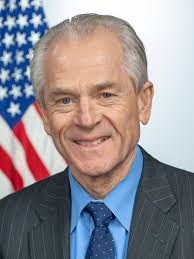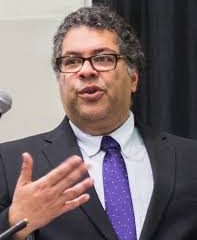The Role of Peter Navarro in Trump’s Economic Policies

Introduction
Peter Navarro, a prominent advisor during Donald Trump’s presidency, held a significant role in shaping U.S. trade and economic policies. His influence was particularly felt during the discussions surrounding tariffs, trade agreements, and the overall economic strategy of the Trump administration. Understanding Navarro’s contributions and controversies provides insight into the administration’s approach to trade and the ongoing debates surrounding America’s economic future.
Background and Career
Before entering the political arena, Peter Navarro was an economics professor at the University of California, Irvine. He authored several books on trade, focusing on the U.S. trade deficit and its implications for American workers. This background laid the foundation for his policies during the Trump administration, where he was appointed Director of the Office of Trade and Manufacturing Policy in 2017.
Trade Policies and Tariffs
Navarro was a vocal proponent of imposing tariffs on foreign goods, particularly from China, which he believed were necessary to protect American industries and jobs. Under his guidance, the Trump administration initiated a trade war with China, leading to significant tariffs on hundreds of billions of dollars worth of goods. Navarro argued that this policy would help revive the American manufacturing sector, a claim that has sparked debate among economists and political analysts.
Controversies and Criticism
Navarro’s tenure was not without controversy. His aggressive stance on trade and his criticism of globalist policies drew ire from many sectors, including agricultural and manufacturing businesses reliant on open foreign markets. Critics argued that the tariffs could lead to increased prices for American consumers and retaliation from trade partners. His polarizing views created a rift within the Republican Party, leading some members to question the long-term viability of Navarro’s aggressive trade strategies.
Legacy and Current Developments
In 2021, following the end of Trump’s presidency, Navarro maintained a visible presence in conservative circles, continuing to advocate for his trade policies and addressing issues relating to China’s economic practices. His perspective remains influential among a certain faction of the Republican Party that champions economic nationalism and protectionist policies.
Conclusion
Peter Navarro’s impact on U.S. trade policy during the Trump administration was profound and continues to resonate in current economic discussions. As debates around trade policy evolve in light of new global challenges, understanding Navarro’s philosophy may offer valuable insights into the direction future administrations might take. For readers interested in the intersections of economics, politics, and trade, Navarro’s story is a compelling example of how a singular view can shape national policy and public discourse.









